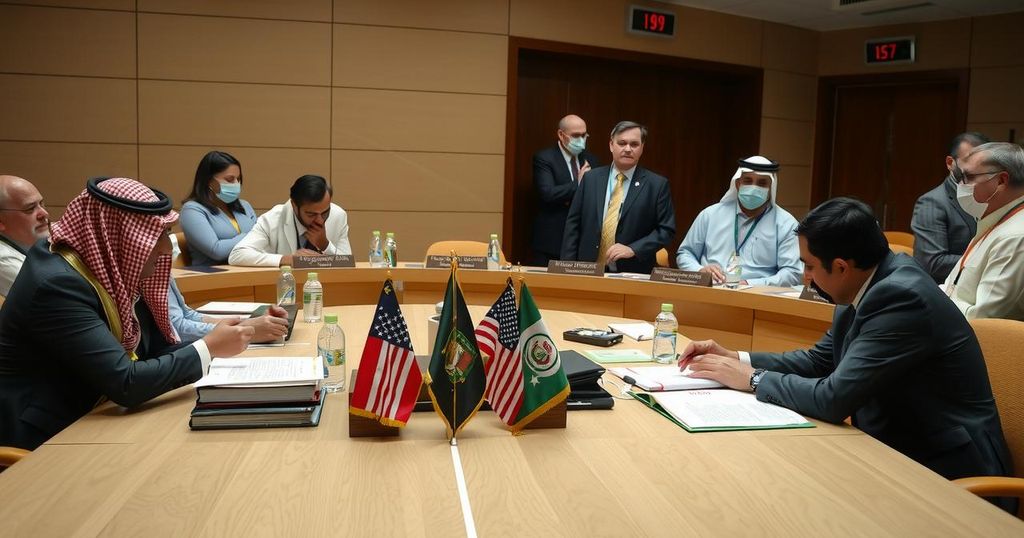The UN talks in Riyadh failed to produce a binding agreement to address global drought, despite significant discussions and planned progress towards a framework intended to be completed by COP17 in 2026. The ongoing divide between developing and developed countries hindered the ability to establish stronger commitments, with environmental costs associated with droughts highlighted during the meeting.
The recent United Nations talks in Riyadh, Saudi Arabia, aimed at establishing a global framework to tackle drought, concluded without reaching a definitive agreement. This failure marks yet another setback in international climate negotiations, following previous unsuccessful discussions regarding climate change, biodiversity, and pollution. The UNCCD Executive Secretary Ibrahim Thiaw acknowledged that participants required additional time to finalize the best approach moving forward. Despite no formal agreement, the parties have made progress towards a future global drought regime scheduled for completion by COP17 in Mongolia in 2026.
Droughts, exacerbated by environmental degradation, impose an estimated annual cost of over $300 billion globally. A UN report highlighted that these severe weather patterns are projected to impact 75 percent of the world’s population by 2050. During the talks, delegates from the Global South, particularly African countries, expressed a strong desire for a binding protocol to ensure accountability among nations in preparing and responding to drought situations. There is a noted divide between the ambitions of developing nations and the preferences of developed countries, which lean towards a less stringent, so-called framework approach.
Indigenous groups and various advocacy organizations have echoed similar sentiments, emphasizing the need for binding commitments from nations to adequately address drought impacts. The discussions in Riyadh also highlighted Saudi Arabia’s significant role as a leading oil producer, where the government has faced criticism for its approach to fossil fuel emissions in climate negotiations. Environment Minister Abdulrahman al-Fadley asserted that the kingdom is initiating various programs to combat desertification, aiming to foster international cooperation in addressing these pressing environmental issues.
In anticipation of the talks, the UNCCD underscored the urgency of restoring 1.5 billion hectares of land by 2030, requiring an estimated investment of $2.6 trillion globally to combat land degradation effectively.
The ongoing global challenges of climate change and environmental degradation demand strong international cooperation. Droughts, driven significantly by human activities, have become increasingly severe and frequent. The United Nations Convention to Combat Desertification (UNCCD) aims to create frameworks to address such crises. The recent COP16 discussions in Riyadh were pivotal in seeking binding agreements to equip nations, especially in the Global South, with effective drought management strategies. Understanding the dynamics between developed and developing countries, and specific regional interests is crucial to comprehending the outcomes of such negotiations.
The outcome of the Saudi-hosted UN talks underscores the complex and often contentious nature of international climate negotiations. The lack of consensus on a binding framework to address drought insists on the pressing need for continued dialogue and collaboration between nations. As concerns about the impacts of drought grow, particularly for vulnerable regions, the urgency for actionable commitments becomes even more critical in the collective pursuit to mitigate climate change effects.
Original Source: www.aljazeera.com






